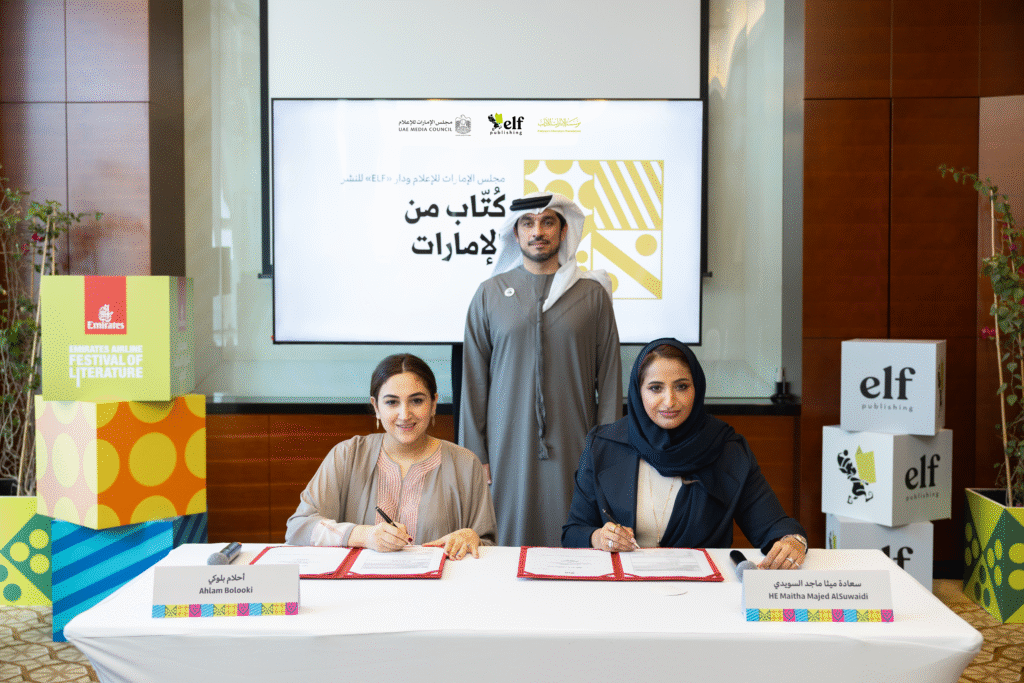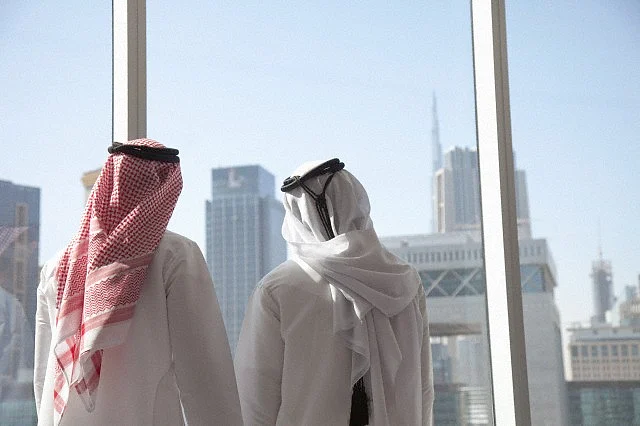In a major step to preserve the country’s unique identity, the UAE has introduced a brand-new policy that aims to promote the Emirati dialect and culture across all media platforms. This policy will ensure that the voices, values, and traditions of Emiratis are more visible in TV shows, radio broadcasts, online content, and print publications.
The UAE’s Media Council shared the news recently, calling it a “Unified Media Strategy.” The goal? To strengthen national identity and make sure future generations understand and appreciate the roots of Emirati culture.
What Is the Emirati Dialect?
The Emirati dialect is a special way of speaking Arabic that is unique to the UAE. Like other Arabic dialects spoken in different parts of the Arab world—such as Egyptian Arabic or Levantine Arabic—the Emirati dialect has its own words, style, and pronunciation.

It is deeply connected to the history, values, and lifestyle of Emiratis. Over time, however, as more global content reaches local audiences, there’s been concern that younger generations might lose touch with this traditional way of speaking.
That’s where the new media policy steps in.
Why This Policy Now?
The UAE is home to over 200 nationalities, and while this diversity is one of its strengths, it has also made it challenging to keep the local culture and language front and centre in everyday life. Many TV channels, YouTube videos, and radio shows often use classical Arabic or other dialects, and English is common in digital content.

By making the Emirati dialect more common in media, the government hopes to:
- Encourage more young people to speak and understand their mother tongue.
- Preserve the country’s unique cultural voice.
- Share authentic Emirati stories and traditions with the world.
This move is also part of the UAE’s larger goal to create a strong, shared national identity.
Who Will Be Affected?
This policy will influence a wide range of platforms and media creators, including:
- TV broadcasters: Programmes aimed at local audiences may need to feature more Emirati voices and presenters.
- Radio stations: Content will likely shift toward local dialects, music, and storytelling.
- Social media influencers: Those creating content in the UAE may be encouraged to use more Emirati Arabic and focus on local themes.
- Print and digital media: News articles and online publications could see changes in tone and language to better reflect Emirati culture.
The policy does not mean banning other dialects or languages, but it will place special focus on promoting Emirati content in both style and substance.
Encouraging Local Talent
One major benefit of this new strategy is that it will create more space for Emirati storytellers, writers, and creators to shine. With local content in high demand, more homegrown talent will be encouraged to enter the media industry.
This means we could soon see more:
- Emirati-led podcasts
- Drama series using the local dialect
- Documentaries on UAE history and traditions
- Children’s programmes that teach Emirati values and language
It’s a chance for the UAE to showcase its culture not just to its residents, but to the entire world.
What the Officials Are Saying
Mansour Al Mansouri, Chairman of the UAE Media Council, said that the policy was developed in cooperation with different federal and local organisations. He highlighted that media is one of the most powerful tools to shape public opinion and protect national identity.
He also said the new policy aims to “strengthen the presence of Emirati cultural content in media” and guide the future of media in a way that respects the UAE’s traditions.
The Council believes that the media should reflect who Emiratis are—not just in what is said, but how it is said.
A Cultural Revival

This move isn’t just about language. It’s part of a bigger plan to boost interest in Emirati culture overall. The media policy will support:
- More traditional Emirati music and arts in mainstream media.
- Highlighting important national events and holidays.
- Promoting traditional clothing, customs, and food.
- Creating space for older generations to share their stories with the youth.
It’s a cultural revival—and it’s starting from the airwaves, screens, and pages we use every day.
What This Means for the UAE’s Future
The UAE is one of the most forward-thinking countries in the world. It’s home to smart cities, AI projects, and a strong economy. But even as the country races into the future, leaders want to make sure that the past is not forgotten.
The new media policy sends a strong message: progress should not come at the cost of heritage.
By strengthening the use of the Emirati dialect and promoting traditional values, the UAE hopes to strike a balance between modern life and cultural pride.
Will There Be Challenges?
Of course. Not all media professionals are fluent in the Emirati dialect, and some content creators might need training or support to adapt. But the UAE Media Council is expected to offer guidance and work closely with companies and individuals to help with this transition.
Also, as the country is home to a diverse population, the policy will need to make sure it is inclusive, respectful, and clear in its goals.
Final Thoughts
The UAE’s new media policy is not just about changing how things are said—it’s about changing what stories are told, and who gets to tell them. It’s about giving the Emirati dialect a stronger voice in a world where global media often dominates.
By celebrating the country’s unique way of speaking and living, this strategy hopes to inspire pride, awareness, and unity across the nation.
So, whether you’re flipping through channels, scrolling online, or listening to the radio—you’ll soon hear a lot more of the UAE’s true voice.
Also read: How Distracted Driving in Abu Dhabi is Causing a Growing Crisis













